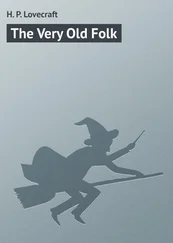Peter did not leave the tree and knew Sarah would fault him for this; but he was fearful that this might be his only chance for years to come to witness what it was that people did to each other when they were naked. He saw Katrina unbutton Francis’s shirt, then unbuckle his belt, saw her walk again to the window to show her full self to Peter, lean over and pick up her robe and then spread it on the floor, lie on it on her back as Francis, now naked, stood over her, then knelt astraddle her, then finally leaned his full self forward and on top of her into a prolonged kiss.
And thus did Peter Phelan, age eleven, witness with the eye of an artist-to-be the rubrics of profane love. He knew too, for the first time, a nocturnal emission that was not the involuntary product of his dreams; and when that happened to him he began the careful, soundless climb down from the tree, shamed by his spying and the wetness of his underwear (more afraid now of having to explain that wetness than of having to give good reason for peering at people from a tree), and regretting even as his feet touched the ground that he had not continued to watch until there was nothing more to see. He thought of his brother as a figure of awesome courage and achievement — courting damnation by conquering the body of the most beautiful woman in the world — but he also sensed, even in the callowness of his newborn pubescence, that, however much he admired Francis, he would never be able to forgive him for doing this before his eyes. Never.
Sarah had been watching Peter for two days before she decided to follow him to the apple tree. She had seen the oddness of his behavior, erratic, skulking in places he had no reason to be (such as the back yard, looking over the Daugherty fence), and in time she put it together as Peter’s secret mission. He was, after all, only a child. But what the child led her to was the shock of her life.
In the infinite judicial wisdom of her Little Motherhood, Sarah, now fifteen, called a meeting of the witnesses and the accused in order to define the future. Clearly capital punishment for Francis was what the heavens screamed aloud for; but Sarah was no vessel for that. All she could do was elevate sin to communal knowledge, spoken of openly in the presence of the sinner (sinners, to be sure, for Peter was not without culpability). So she summoned them to the front steps of St. Joseph’s and, wearing the mantilla that the old Spanish nun had given her in school as a prize for her essay on chastity (“the virtue without which even good works are dead”), Sarah defined the terms under which she would allow her brothers to continue living in the same house with her and her mother, and the sainted moron Tommy, and the hapless Chick, and the good sisters, Molly and Julia (who, Sarah knew, had chastity problems of their own, but she chose not to raise them here), and the terms were these: That Francis would confess that he had been living in the occasion of sin by working for Mrs. Daugherty, whose behavior we must somehow reveal without being vulgar. We can never tell our mother that you put your hands on her naked body, how could you do such an awful thing?
“Listen,” Francis said, “don’t knock it till you tried it,” whereupon Sarah ran up the stairs into the church and did not talk to either brother for three days, after which time she raised the issue at the dinner table.
“Mama,” Sarah said to all assembled siblings, “Francis has something to tell you.”
“No I don’t,” Francis said.
“You’ll tell her or I will,” Sarah said.
“I got nothin’ to say,” Francis said.
“Then Peter will tell,” Sarah said.
“Not me,” Peter said.
“Will somebody tell me what this is about?” Kathryn Phelan asked. Her other children, Chick, Julia, Molly, and Tommy, looked bewildered at their mother’s question.
“It’s what Francis is doing,” Sarah said. But she could say no more.
“Sarah doesn’t think I oughta work for Katrina,” Francis said. “I think Sarah oughta mind her own business.”
“Why not work for her?” Kathryn asked.
“There’s more than work going on over there,” Sarah said.
“And what might that mean?”
“Are you going to tell her?” Sarah asked Francis.
Francis stared into Sarah’s eyes, his face crimson, his mouth a line of rage.
“Well?” said Kathryn.
“She put her arms around him,” Sarah said.
“What does that mean?”
“It doesn’t mean anything,” Francis said.
“Why did she do that?”
“She likes the way I work,” Francis said.
“He’s lying,” Sarah said.
“How do you know?” Kathryn asked. “Did you see her do this?”
“Yes, and so did Peter.”
“I don’t know what I saw,” Peter said.
“Don’t lie,” Sarah said.
“Everybody’s a liar but Sarah,” Peter said.
“What were you doing watching over there?” Kathryn asked Sarah.
“I followed Peter. He’s the one who was watching.”
“You’re a lousy rat, Sarah,” Peter said. “A real lousy rat.”
“Never mind name-calling. I want to know what went on What is she talking about, Francis?”
“Nothin’. I work for her, that’s all. She’s a nice person.”
“She was naked,” Sarah said.
“Naked!” Kathryn said, and she stood up and grabbed Francis by the ear. “What’ve you been doing, young man?”
Francis stood and jerked his head out of his mother’s grip. “I walked into her room when she was dressin’,” he said. “It was a mistake.”
“He’s lying again,” Sarah said. “He was painting and she took her robe off and was naked and then she threw her arms around him and he did the same thing to her.”
“Is that true?” Kathryn asked, her face inches from Francis.
“She’s a little crazy sometimes,” Francis said. “She does funny things.”
“Taking her clothes off in front of you? You consider that funny?”
“She doesn’t know what she’s doin’ sometimes. But she’s really all right.”
“He put his arms around her and they kissed for a long time,” Sarah said.
“You bitch,” Francis said. “You stinkin’ little sister bitch.”
Kathryn swung her left hand upward and caught Francis under the jaw. The blow knocked him off balance and he fell into the china closet, smashing its glass door, shattering plates, cups, glasses, then falling in a bleeding heap on the floor.
Thirty-six years gone and here he is back again, Peter thought, and there is the china closet, and here we all are (Sarah will come down from her room eventually; she will have to face the reality of his return), and here minus Julia are the non-conspirators, Molly, Chick, Tom-Tom, Orson, the added starter, about the same age I was when all this happened, and Francis, who is no more repentant today of whatever sin than he was when Mama knocked him down with her left hook.
“I thought Sarah was comin’ down,” Francis said.
“She’ll be down,” Molly said. “She’s getting dressed for tonight.”
“You look pretty, Moll. Real, real pretty. You got a beau? Somebody sweet on you?”
Molly put her eyes down to her plate. “Not really,” she said.
“How about Sarah? She didn’t marry, did she?”
“No,” said Molly.
“I ran into Floyd Wagner down in Baltimore. I’m on my way to Georgia and old Floyd, he’s a cop now, was gonna arrest me. Then he seen who I was and instead of arrestin’ me he bought me a beer and we cut it up about the old days. He said he went out a few times with Sarah.”
“That’s so,” said Molly. “Sarah broke it off.”
“So Floyd said.”
“Never mind about Floyd Wagner,” said Sarah, descending the back stairs into the room. She was in total mourning, even to the black combs that held her hair, her dress a high-necked, ankle-length replica of the recurring dress that Kathryn Phelan had worn most of her life, always made by the perfect, homemade dressmaker, Sarah. It was less a mourning garment than a maternal uniform — black cotton in the summer, black wool in winter — that asserted that unbelievable resistance to anything that smacked of vanity, though not even that: of lightness, of elevation. Her children and relatives had tried to sway her with gifts of floral-patterned dresses, colored skirts and blouses, but the gifts remained in boxes for years until finally Kathryn gave them to the Little Sisters of the Poor.
Читать дальше












